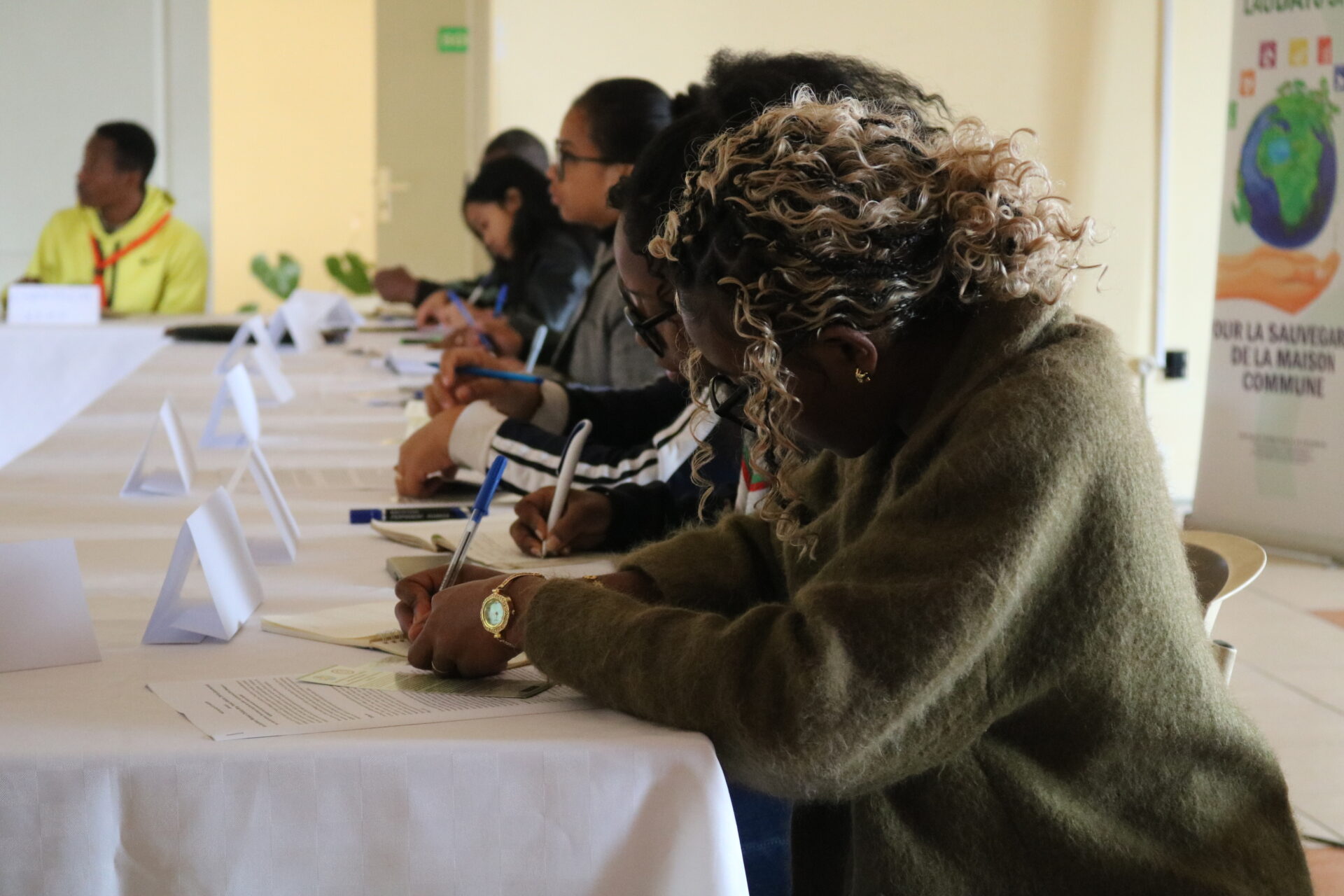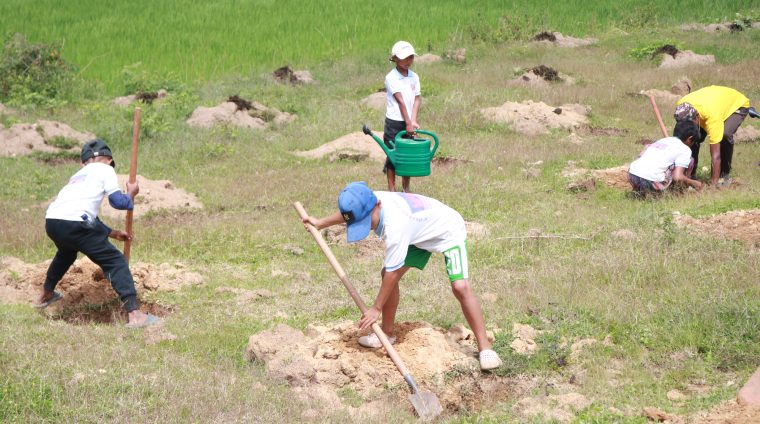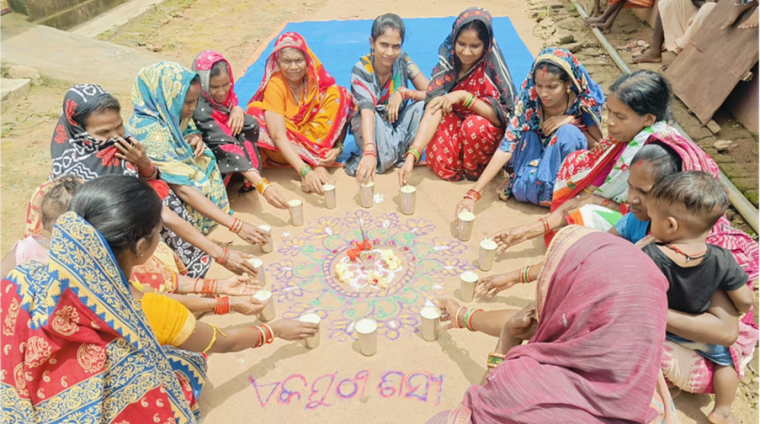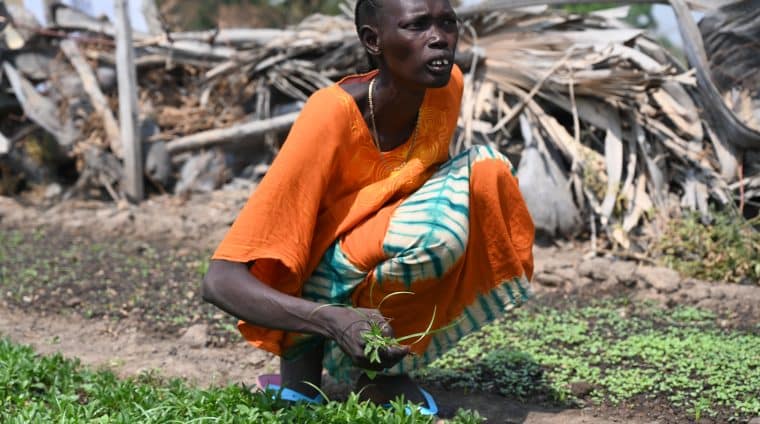By Centre Arrupe Madagascar Communications
The Centre Arrupe Madagascar recently organised a workshop on a sensitive environmental issue: the management of single-use plastic bags, particularly those with a thickness of less than 50 microns, which are still widely used despite being banned.
The meeting brought together researchers, legal experts, representatives of public institutions, and civil society actors, with a shared desire to contribute to a better understanding of the current system and propose concrete avenues for reform.
A study conducted by the Research and Documentation Programme served as the basis for the discussion. It was built on a rigorous methodology including field surveys, interviews with key stakeholders, and analysis of regulatory texts on plastics management.
The preliminary results revealed a worrying situation: only 21% of the bags analysed bore the legally required label (“reuse to preserve the environment”), and less than a quarter indicated the producer’s identity. This lack of identification complicates traceability and prevents any effective enforcement of sanctions.
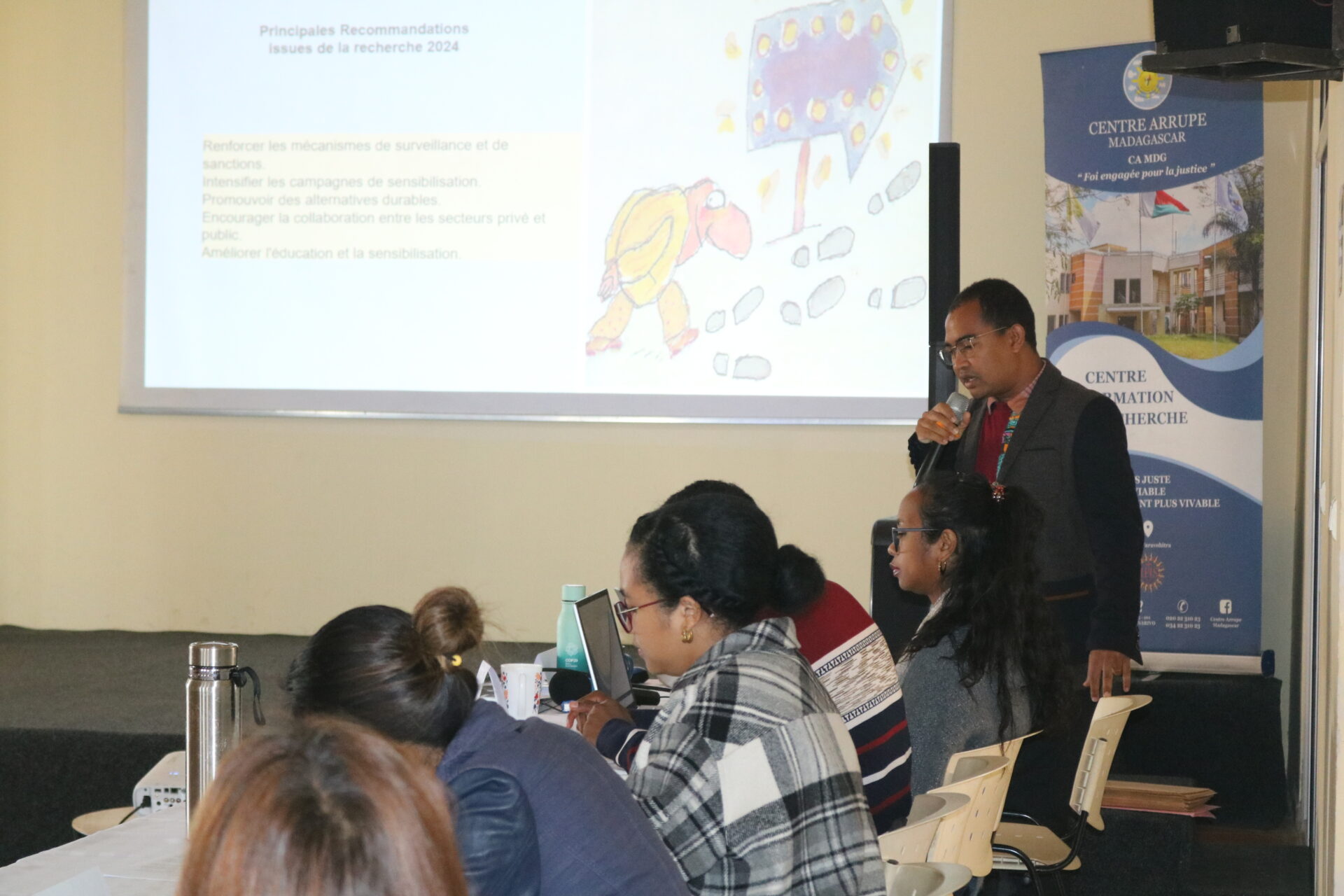
Structural and legal dysfunctions hamper the system’s effectiveness
Beyond the figures, institutional coordination was particularly criticised. Although several ministries and entities are involved, collaboration between them remains insufficient.
The National Office of the Basel Convention, which is supposed to play a steering role, lacks resources, creating information gaps and a dilution of responsibilities. Field agents, such as customs officers, are also poorly trained on the standards in place, leaving the door open to errors and abuses.
From a legal perspective, the current framework suffers from a certain vagueness. The lack of a clear definition of the roles and responsibilities of each stakeholder creates an operational vacuum that hinders regulatory implementation.
Furthermore, Madagascar still lacks a specific law on environmental offences, which prevents effective sanctions against violators. In response to this situation, a series of recommendations were proposed, including the revision of Decree No. 2017-010 of 3 January 2017, which prohibits single-use plastic bags in Madagascar.
The group called for better defined responsibilities on the ground, reform of the operations of the National Office of the Basel Convention, and an updated National Environmental Charter.
Another notable proposal is the introduction of a decree on Extended Producer Responsibility, which would require manufacturers to take responsibility for the end-of-life of their plastic products.
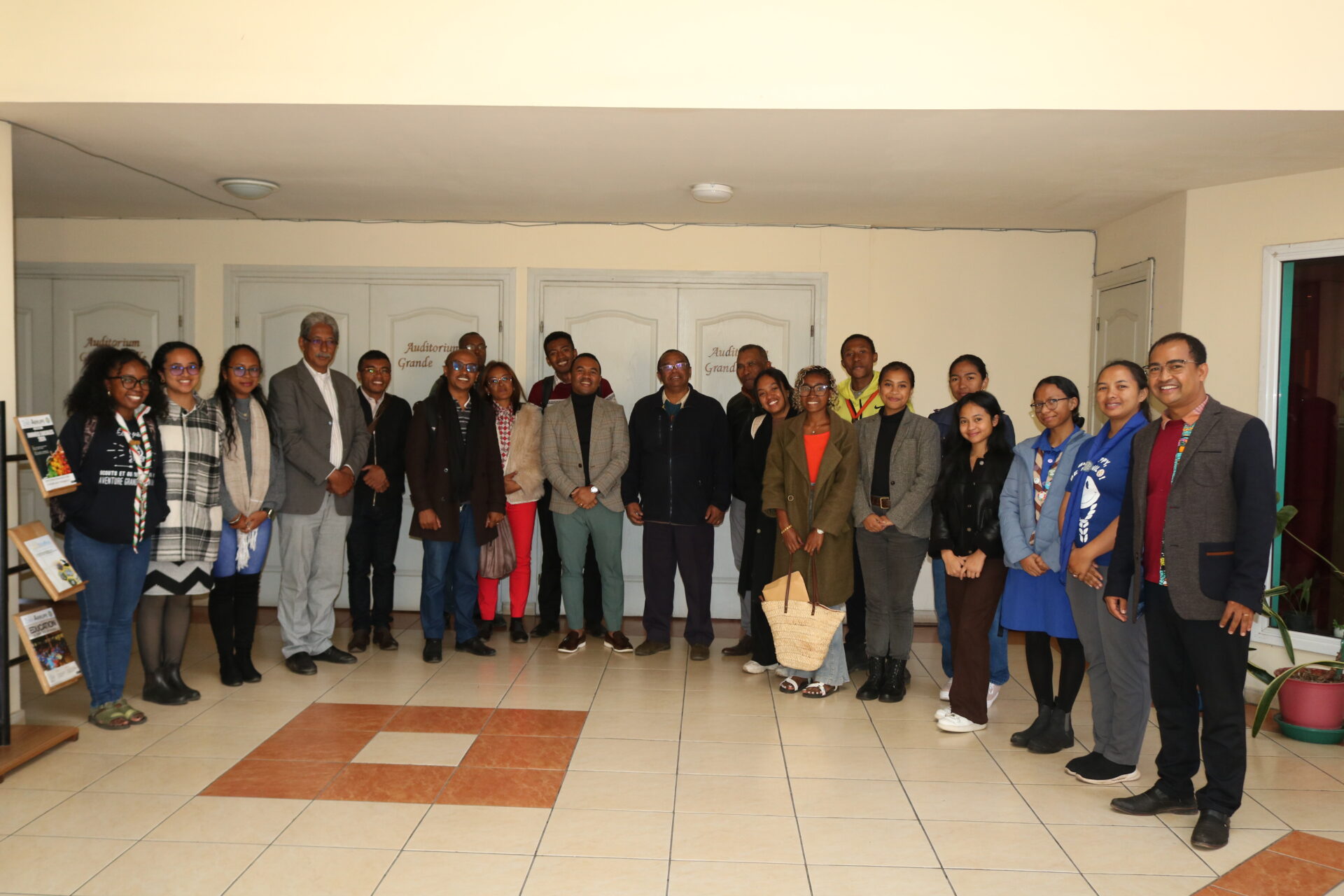
A shared desire for change and avenues for the future to be refined
The discussions then benefited from exchanges between participants. Experts emphasised the importance of aligning the fight against plastic pollution with the country’s socio-economic realities, particularly the dependence of certain informal actors on the production or sale of these banned plastics.
The need for an inclusive approach, taking these dimensions into account, was therefore highlighted with a view to drafting a truly enforceable law on environmental offences.
The debate also opened the floor for reflection on the relevance of Madagascar signing the Bamako Convention, considered by several speakers to be better suited to African realities than the Basel or Stockholm Conventions. However, the high cost of implementing this convention remains a major obstacle.
The publication of a policy brief from this meeting is planned to amplify advocacy, followed by a second brief following a complementary workshop. Together, these publications aim to offer a coherent set of recommendations to the relevant authorities for a more effective plastic waste management policy.
In short, this meeting highlighted both the gaps and the opportunities in the fight against plastic pollution in Madagascar. It has demonstrated that reform is possible, provided that political will is strengthened, institutional roles are clarified, and decisions are anchored in a solid scientific basis.
Through this approach, the Centre Arrupe continues to actively contribute to building a more sustainable and just society, where waste management is no longer perceived as a mere technical challenge, but as an issue of public health, governance, and environmental justice.
*This article was translated from French.

